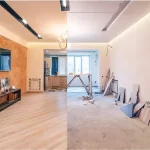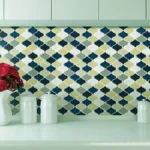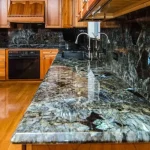A driveway is more than just a functional path for vehicles — it’s one of the first features visitors notice about your home. The right driveway can enhance curb appeal, increase property value, and provide long-lasting performance with minimal upkeep. Choosing a durable and stylish solution requires careful planning, the right materials, and proper installation.
This guide explores the most popular driveway materials, design ideas, maintenance tips, eco-friendly solutions, and advice for hiring the right professionals. Whether you’re building a new driveway or upgrading an existing one, these insights will help you make the best choice for your home.

Content
1. Key Considerations Before Choosing a Driveway
Before committing to a design, homeowners should evaluate several important factors:
- Soil Type and Climate: Heavy clay soils, for example, may shift over time and affect stability, while areas prone to freezing and thawing cycles require materials that can handle expansion and contraction.
- Load-Bearing Capacity: Consider how many vehicles will regularly use the driveway, and whether you’ll need to accommodate heavy loads such as delivery vans or RVs.
- Maintenance Requirements: Some surfaces, like gravel, require frequent upkeep, while others, such as resin or concrete, offer low-maintenance durability.
- Aesthetic Appeal: Your driveway should harmonize with the overall design of your home and garden, enhancing rather than clashing with your property’s exterior style.
2. Popular Driveway Materials
Different materials offer different advantages in terms of style, durability, and cost. Here are the most popular options:
a. Concrete Driveways
Concrete is one of the most widely used driveway materials due to its strength and versatility. It can be finished in a variety of ways: plain, colored, or stamped with decorative patterns. With proper installation and sealing, concrete can last decades with minimal upkeep.
b. Block Paving Driveways
Block paving offers a classic and stylish look. Bricks or concrete blocks can be arranged in patterns such as herringbone, basketweave, or stretcher bond. Its modular nature makes it easy to repair — individual blocks can be replaced if damaged.
c. Gravel Driveways
For those seeking a rustic and affordable solution, gravel is an excellent choice. Gravel driveways provide excellent drainage and are relatively easy to install. However, they require periodic topping up and weeding to maintain their appearance.
d. Resin-Bound Driveways
Resin-bound surfaces combine decorative aggregates with a clear resin to create a smooth, durable finish. They are highly resistant to cracking, permeable for drainage, and available in a wide range of natural stone colors. Homeowners often turn to a specialist Resin Driveways contractor to ensure a flawless installation, as proper technique is key to long-lasting results.
e. Tarmac/Asphalt Driveways
Asphalt is a practical choice for heavy-use driveways. It’s cost-effective, durable, and quick to install. However, it may require resealing every few years to maintain appearance and prevent cracking.
3. Stylish Design Ideas for Driveways
A driveway doesn’t need to be plain or purely functional — with the right design touches, it can become a standout feature.
- Mixing Materials: Combining gravel borders with a resin-bound or block-paved center adds depth and visual appeal.
- Curved Layouts: Soft curves create a natural, elegant look, especially in large front gardens.
- Lighting: Inset LED lights or pathway lighting improves safety and adds a touch of sophistication at night.
- Edging and Borders: Contrasting edges in brick or stone help define the driveway’s shape and prevent material spread.
4. Durability and Maintenance Tips
To maximize the lifespan of your driveway, follow these essential care tips:
- Regular Cleaning: Sweep or pressure wash to remove dirt, moss, and debris.
- Sealant Application: Concrete, block paving, and resin surfaces benefit from sealants that protect against stains and weathering.
- Weed Prevention: Apply weed control membranes or jointing compounds to stop unwanted growth.
- Prompt Repairs: Small cracks or loose blocks should be addressed immediately to prevent larger problems.
- Seasonal Care: Clear snow and ice carefully to avoid surface damage, and ensure proper drainage to prevent water pooling.
5. Eco-Friendly and Sustainable Driveway Options
With sustainability becoming a priority for many homeowners, eco-conscious driveway solutions are gaining popularity.
- Permeable Paving: Allows rainwater to seep through, reducing surface runoff and supporting groundwater recharge.
- Recycled Materials: Driveways can now be constructed using recycled aggregates, reclaimed stone, or eco-friendly resins.
- Green Driveways: Grass reinforcement grids combine greenery with vehicle support, providing an eco-friendly, natural look.
These options not only reduce environmental impact but may also help you comply with local planning regulations regarding surface water management.
6. Hiring the Right Professionals
Even the best materials can fail if poorly installed. Hiring an experienced contractor ensures your driveway is built to last. Here’s what to consider:
- Experience and Portfolio: Review past projects to assess quality and style.
- Certifications and Insurance: Ensure contractors have proper credentials and liability coverage.
- References and Reviews: Check client testimonials for reliability and customer service.
- Detailed Quotes: A reputable installer will provide a clear breakdown of costs, materials, and timelines.
Choosing the right team is especially critical for advanced solutions like resin-bound or decorative block paving, where expertise makes all the difference.
7. Cost Factors to Keep in Mind
The cost of a new driveway varies depending on material, size, and design complexity. Consider these aspects when budgeting:
- Material Costs: Resin and block paving tend to be more expensive than gravel or asphalt, but they often provide greater long-term value.
- Installation Costs: Complex patterns, curves, or additional features like lighting increase labor costs.
- Maintenance Expenses: Some surfaces may have lower upfront costs but require more frequent upkeep.
- Added Features: Edging, drainage, and landscaping can significantly affect total project cost.
Balancing upfront investment with durability and style will ensure you get the best value.
Conclusion
Your driveway is both a functional necessity and a design opportunity. By carefully considering materials, incorporating stylish design elements, and hiring skilled professionals, you can create a surface that’s durable, low-maintenance, and visually appealing.
From the timeless strength of concrete to the modern elegance of resin-bound surfaces, today’s driveway solutions cater to every style and budget. And with eco-friendly options now widely available, you can enhance your home’s curb appeal while minimizing environmental impact.
Investing in a well-designed driveway is more than just an upgrade — it’s a smart decision that adds lasting value, convenience, and pride to your home.

Melissa Day is a dedicated home blogger who has been blogging for over six years. She covers everything home related. Melissa also loves writing posts about her travels to Europe with her husband and two children.












